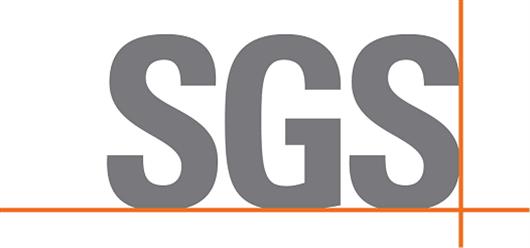 Add My Company
Add My Company
Sign In

Keeble Group Ltd is one of the UK’s foremost recycling companies, specializing in the collection, grading and redistribution of paper, card, plastic and other non-hazardous waste to clients around the world.
The family-run business was established over 100 years ago, when a forebear of the current directors collected waste paper from printers in the East End of London and delivered it to a local paper mill. Growing in size, progressing in methodology and increasing in capability, the company – based in Rainham, Essex since the late 1950s – now has a substantial customer base. Its principal area of work is collecting waste paper from printers – including secure paper destruction for their financial and public-sector customers – and recycling it into the appropriate grades for paper and board mills, both in the UK and abroad. Packaging waste is also recycled, addressing the regulations and requirements of the Environment Agency and local authorities. Non-recyclable industrial waste is used for refuse-derived fuel (RDF) rather than going to landfill. Even unserviceable wooden pallets are sent to a wood recycling company for the manufacture of chicken bedding.
Keeble Group boasts a negative carbon footprint, thanks to a proactive and innovative approach to sustainability. A recent example was replacing metal paper collection cases with considerably lighter plastic ones, resulting in lower fuel usage and fewer pollutants.
It has achieved certification to both the ISO 9001:2015 quality management and ISO 14001:2015 environmental management standards, with both audits carried out by SGS.
WHY KEEBLE GROUP SOUGHT CERTIFICATION
“We had everything in place for ISO 14001:2015 long before the standard was even thought of,” claims General Manager Bob Hewing. “Recycling and sustainability have long been embedded in the culture of the business and all our workforce.” Hewing explains that the company had previously been accredited to Green Mark, working closely with a local university.
However, when the ISO environmental standard was introduced, it was considered essential to gain certification. The de facto standard was being sought increasingly by printers and, in turn, their supply chain partners. It would reduce the need for individual audits by current and prospective customers. It would raise perception of the company above being ‘just another waste management business’. In addition, the fact that ISO is globally recognized would facilitate business with customers outside the UK.
WHY SGS?
Bob Hewing initially approached several auditing companies, some as a result of recommendations from larger printers whom Keeble worked with. He admits that the prospect of preparation for the standard was daunting, not least as it had been decided to gain ISO 9001:2015 at the same time.
The SGS name came up more than once, and the organization was also recommended by a quality consultant as a ‘blue chip’ partner whose name on the certificate would add credibility and authority. On speaking to SGS, Hewing found that they made the process clearer. Coincidentally, one of the university lecturers whom Keeble had worked with on attaining the Green Mark, has subsequently become an SGS auditor.
IMPLEMENTING ISO 9001 AND ISO 14001: THE PROCESS
Bob Hewing recounts: “When we began the process, we had to have a project, which was to reduce our carbon footprint. In practical terms, it was not that difficult as the nature of our business means a reduction in the use of trees to offset our footprint. This had to be quantified, and SGS verified that this process was effective.” He continues: “Very importantly, it also helps our customers to join the negative carbon chain.”
A considerable amount of work was required to meet the standard itself. Hewing had taken advantage of an SGS ISO foundation course and ensured that the systems were in place to ensure certification. The fact that Keeble Group has all of its own plant and transport also helped to ensure compliance, which even covers its air conditioning systems.
The three-day Stage 2 audits for both standards were conducted at the same time, with one auditor working on each. Certification to both the environmental and quality management standards was granted in January 2019.
Excerpts from the auditor’s report reflect the amount of hard work and dedication applied to the preparation:
The company demonstrated great professionalism and good control of its activities and understanding of their systems, with the senior management team seen as being very hands-on regarding the integrated management systems, especially regarding transition for ISO9001 and ISO14001, risk management, strategy planning and business improvements.
A detailed strategic business plan has helped the company to prepare well for ISO9001:2015 and ISO14001:2015 and provide good foundations for expanding their client business whilst meeting their compliance obligations.
Keeble have developed a strong Objective and Targets and Monitoring Programme and made good progress around:
Carbon footprint
Waste to energy
Maintain on-time delivery
Maintain on-time collection
Improved customer satisfaction
Good teamwork was evidenced with good customer satisfaction and service excellence discussed with an understanding of how to move forward with the new standard, and demonstrating how the company is implementing improvements, especially with implementation of a Business Improvement Report System which meets requirements of ISO9001:2015 and ISO14001:2015.
HOW THE CERTIFICATIONS HAVE BENEFITED THE BUSINESS
Quality and sustainability have always been embedded in the business, but now, adherence to the ISO standards is also front of mind for all employees, as part of their daily work. Employee manuals have been rewritten to incorporate the need to maintain the standards.
As anticipated, certification is resulting in a reduction in the number of individual inspections by prospective customers, reducing time and cost for both parties. Bob Hewing also finds that having had SGS as the auditor brings an additional degree of confidence that the standard has been correctly applied.
The internal systems established in preparation for the standards have also had many practical benefits in day-to-day operations; Hewing cites faster, easier tracing of plant, vehicles and employees as a prime example.
Perhaps one of the most important benefits is that Keeble Group can, in turn, advise its customers on how they can meet the standards required of them under ISO, adding to its credentials as a helpful and robust business partner.
Bob Hewing advises organizations considering certification to gain a complete understanding of requirements, including a suggestion to take up SGS’ ISO foundation course. He also passes on what he considers to be the best advice he received from SGS at the outset: “Make the system work for you”.
For more information on RECYCLING COMPANY CONTINUES COMMITMENT TO QUALITY AND SUSTAINABILITY talk to SGS United Kingdom Ltd
Enquire Now
More News
List your company on FindTheNeedle.
